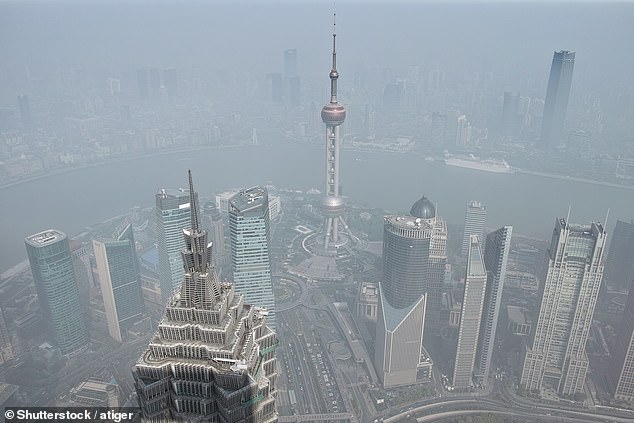
China’s Cleaner Air Paradoxically Accelerates Global Warming Through Pollution Reductions
Cleaner Air in East Asia Accelerates Global Warming, Scientists Reveal
Reducing air pollution is vital for public health, but scientists warn that East Asia’s cleanup efforts are unintentionally speeding up global warming. While pollutants like sulfur dioxide are deadly, they also create reflective clouds that cool the planet. As China and neighboring countries slash emissions, they’re removing this “artificial shade,” exposing Earth to more intense warming from greenhouse gases.
The Pollution Paradox
Air pollution particles, or aerosols, act as a planetary sunshield. They brighten clouds, reflecting sunlight back into space. This effect has masked up to 0.5°C (0.84°F) of warming caused by carbon emissions over the past century. However, East Asia—particularly China—has cut sulfur dioxide emissions by 75% in 15 years, drastically reducing this cooling effect.
Image: Satellite map showing reduced air pollution (green) over East Asia.
Warming Spike Linked to Clean Air Policies
Global warming rates jumped from 0.18°C (0.32°F) per decade before 2010 to 0.24°C (0.43°F) afterward. Researchers from the University of Reading linked this spike to cleaner air in East Asia. Their simulations revealed that pollution reductions there contributed 0.07°C (0.12°F) of recent warming. “We’re unmasking the hidden impact of CO2,” explains co-author Prof. Laura Wilcox.
Image: Beijing skyline transition from smoggy to clear skies.
Climate Sensitivity Clarified
The rapid warming initially suggested Earth might be more sensitive to CO2 than expected. However, the study shows aerosol reductions—not higher sensitivity—explain the acceleration. Lead author Dr. Bjørn Samset notes, “Global warming is worse than we saw, but not because the climate is more fragile. We’re just feeling the full force of emissions now.”
Image: Graph comparing projected vs. actual temperature rise post-2010.
Health vs. Climate Trade-Off
Cleaning air pollution prevents millions of premature deaths annually but comes with climate costs. “The health benefits are urgent, but we must counter CO2 faster,” says Samset. While the “catch-up” warming from reduced aerosols may plateau, CO2-driven warming will persist until net-zero emissions are achieved.
Image: Illustration of aerosols reflecting sunlight vs. CO2 trapping heat.
The Path Forward
The study underscores the urgency of cutting greenhouse gases. “To meet Paris Agreement goals, emissions must drop rapidly,” warns Samset. Though daunting, clearer skies offer a grim reminder: CO2 remains the primary threat, demanding global action beyond pollution control.
Word count: 600


